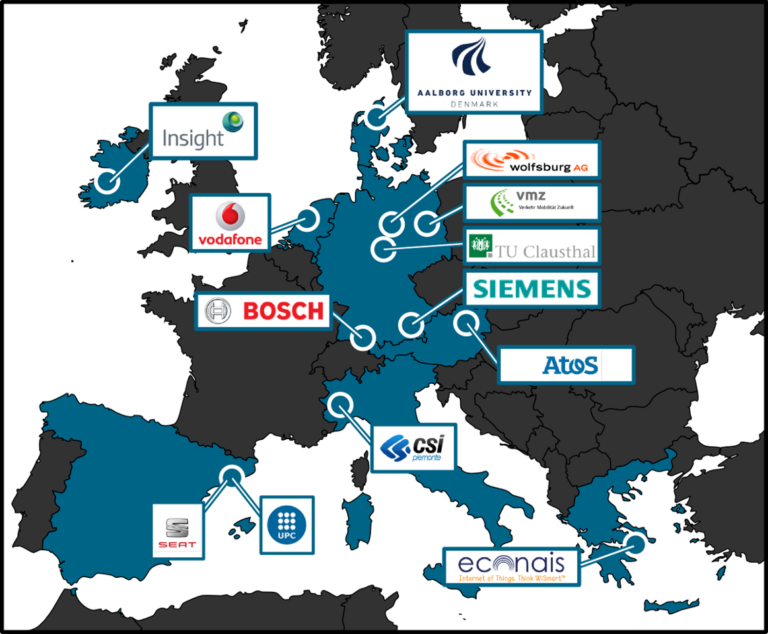H2020 – BIG IoT
- Juan Hernández (UPC – ENTEL)
- See official project website
http://big-iot.eu/
Home » Success Stories »
Description
The goal of the BIG IoT project is to launch truly active and dynamic Internet of Things (IoT) ecosystems. To achieve this we will reduce the interoperability gap between vertical IoT platforms and create Marketplaces for IoT services and applications.
Despite various research and innovation projects on the Internet of Things, no widely accepted professional IoT ecosystem exists. This is due to the barriers to entry in the markets that developers and service providers face, due to the fragmentation of IoT platforms. Developers who want to use smart objects hosted by different providers need to negotiate access to each platform individually and implement specific adapters. As the efforts to negotiate individual contracts outweigh the potential gains, the providers of these platforms do not have strong incentives to open their platforms to third parties.
The goal of this project is to overcome these obstacles, reducing the IoT interoperability gap and creating Marketplaces for providers of services, applications and platforms. We will reduce the interoperability gap by defining a generic and unified Web API for smart object platforms, called the BIG IoT API. The establishment of a Marketplace where platform, application and service providers can monetize their assets will introduce an incentive to grant access to previously closed systems and lower entry barriers for developers.
In the near future, the number of connected smart objects will exceed the number of people using the Internet. With the proposed strategy, based on the generic BIG IoT API, an IoT ecosystem will come to life, as it will provide a functional and easy way to discover, access, control, manage and secure smart objects. The API will be designed in an open community process, and the project consortium will participate in ongoing standardization initiatives to receive input and contribute to the specifications. The BIG IoT API will be implemented on a total of 8 smart object platforms. To encourage external implementation of the BIG IoT API, the project will conduct outreach and exploitation activities focused on influencing the developer community. In addition, as part of the project, an Open Call will be held to involve SMEs in the implementation of services, applications and platforms in line with the BIG IoT approach. Following an evolutionary and agile strategy, the technologies developed will be demonstrated simultaneously in three regional pilot tests, involving partners with solid relationships with public authorities. Several use cases within the pilot cases will validate the technologies developed, under a common theme of smart mobility and smart road infrastructure.
The BIG IoT consortium is well suited to achieve the goals described. Among the partners we find smart object platform providers (eg CSI, Vodafone, VMZ, Wolfsburg AG) that will implement the BIG IoT API. Smart object producers (Bosch, Econais) will implement the BIG IoT API at the device level. ATOS, as an IT service provider with experience in developing and operating B2B Marketplace infrastructures, will implement the BIG IoT Marketplace. Big companies from different domains (Bosch, Seat, Siemens, Vodafone) will propose the requirements and design the architecture and API from their perspective. Four European universities with extensive experience (Clausthal University of Technology, National University of Ireland Galway, Universitat Politècnica de Catalunya, Aalborf University) will help transfer the state of the art and solve active research challenges.

This project has received funding from the European Union’s H2020 research and innovation program under grant agreement no. 688038.
Articles and presentations
- Big IoT Project Video Presentation, Big IoT Project, 3 maig 2016
- BIG IoT Article, BIG IoT Article, January 30th 2017
- BIG IoT Video Interview, BIG IoT Interview, May 25th 2017
